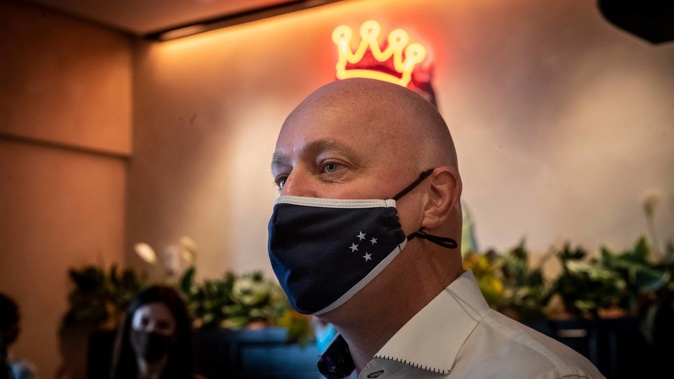
National's new leader Christopher Luxon says he is a "big fan" of raising the minimum wage, as long as the economy is growing enough to sustain it.
In April Luxon criticised the minimum wage increase from $18.90 to $20, saying it was hurting small businesses and the economy was not strong enough to support it.
Speaking to Q+A's Jack Tame, Luxon said there were mounting costs for small businesses, with sick leave doubling and new public holiday for Matariki.
"I'm a big fan of increasing minimum wages, but when you do it when your economy is growing around three to four per cent mark so you can sustain it," Luxon said.
"All that cost gets shunted across to small business to pay for. As a result, it's a big disincentive for them to invest back in their business and actually create new jobs."
Luxon took over leadership of the party this week, and the former Air New Zealand CEO has faced questioning over his ownership of seven properties, a passive investment, despite commenting about making the economy more productive.
Luxon said property investment had been incentivised, which was "not sustainable".
"That's the issue — we've got massive double-digit growth in housing.
"It's causing unaffordability issues big-time. It's actually incentivising people to not actually put it into a broader set of asset classes.
"I get that. I understand you. It's not sustainable."
Luxon also defended his criticisms around the new traffic light system, saying it was "incredibly confusing".
"It's very hard to justify why Auckland is in red and the South Island in orange."
He said more needed to be done to "de-risk Covid" and, saying there had been "no real progress" over the past 18 months such as increasing ICU capacity and implementing rapid saliva testing.
"We had a very, very good 2020. I thought the Government handled things very, very well. But we sort of wasted the opportunity to get things organised."
Luxon, who previously held the iwi development portfolio, was also questioned on Te Tiriti o Waitangi (Treaty of Waitangi).
He said he was "not an expert" on the Treaty, but he felt an issue was the interpretation of the three articles, and there were "different views" as to what they meant.
He said he did not believe tino rangatiratanga meant co-governance.
"It means partnership. Māori having authority over their taonga, treasure, land.
"I think the way it has been represented to New Zealanders is a separate system."
He said there were good examples of by-Māori, for-Māori solutions that had been funded by government, but he felt the co-governance model, and Māori Health Authority, were "separatist".
Former leader Judith Collins also described the Māori Health Authority and proposals in the He Puapua report on Māori self-determination as separatist.
Take your Radio, Podcasts and Music with you









